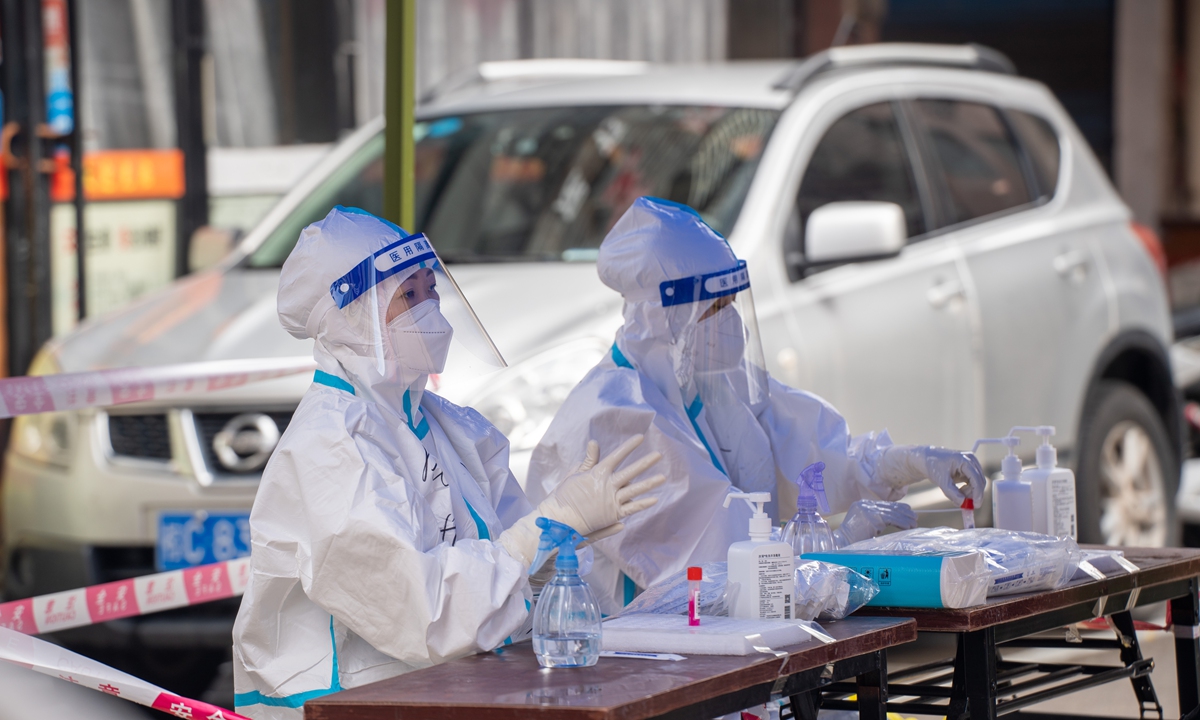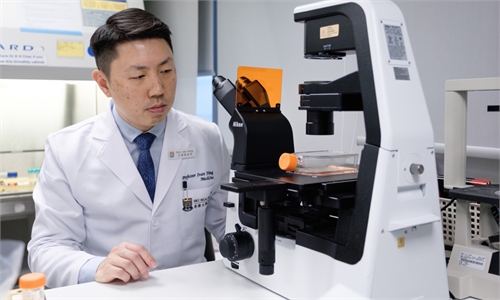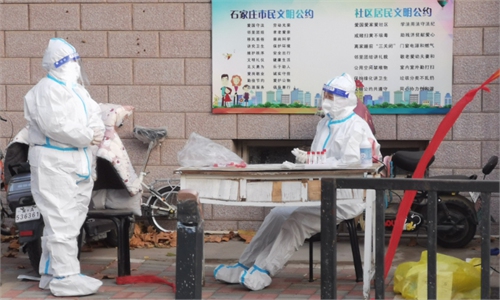State Council COVID prevention team exposes problems of excessive COVID controls, urges timely response to public concerns

Photo: CFP
China's State Council joint prevention and control mechanism against COVID-19 on Saturday responded to public inquiries over the implementation of the recently released 20 measures that aim to optimize the country's epidemic response, revealing typical problems of excessive controls in some localities, while saying that such behaviors should be further exposed and punished in accordance with the law.
Some localities in China have been repeatedly found with behaviors of excessive control measures, the joint prevention team said, exposing three kinds of typical problems - First, the lack of precision in implementing preventive measures that affected people's livelihoods and production to a great extent; second, the inflexible coping and harsh attitude of certain officials, which resulted in poor communication with the local people; third, untimely and insufficient release of epidemic-related information.
To address these problems, the joint prevention team said that for those local officials who close schools and halt production at will, block traffic without authorization, arbitrarily impose "silent management" or prolonged lockdowns, and suspend clinics in medical institutions, the public is encouraged to expose their behaviors. For those causing serious consequences, legal responsibility must be pursued for the local officials in accordance with the law and regulations.
It also added that if high-risk areas have not reported new infections for five consecutive days and all personnel in the risk area tested negative in nucleic acid tests, then it should be deemed low risk immediately, meanwhile lifting lockdowns in the region.
Responding to the most frequently asked question in recent days on whether there will be adjustment to China's COVID prevention policy, the joint prevention team said they have been studying and making adjustments all the time to maximize the protection for the people and minimize the impact on socioeconomic developments.
On whether it is necessary to take as many nucleic acid tests as possible, the joint prevention team said that for major cities in China facing risks of epidemic spread, all-member COVID tests should be carried out every day in risk areas. After no new infection is found outside quarantined zones for three consecutive tests, the all-member screening will be extended to once per three days.
If by then no more infection is found at community level, the all-member tests can be stopped, People's Daily reported on Saturday.
A number of experts on Friday noted that the Omicron variant which triggered this round of epidemic outbreak in Guangzhou, South China's Guangdong Province, only caused mild symptoms in most of the cases, similar to those of seasonal cold, calling on the public not to panic, media reports said.
Global Times


